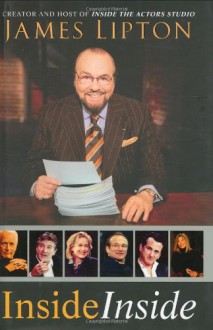
Loved this book. It’s a linguistic treatise about the names for groups: groups of various animals, or groups of people of various professions or social circles, or groups of abstract concepts. A Comedy of Errors is in this book (yes, it’s a group name, created by Shakespeare, not the genre name). So is a School of Fish or a Barrel of Monkeys or an Exaltation of Larks. It includes over 1000 terms, some more established than others.
Lipton writes about his sources for this book, some of them from 15th century, and its instant, unexpected by the author, success. In his opinion, the group names he lists in his book are both poetry and a game. He participated in the game too, creating several group names, and he encourages everyone to pitch in.
The book is funny. It’s thoughtful. It’s written in English so beautiful and rich I wanted to cry from joy, just as I laughed at its puns or winced at its insights. It’s also very well researched and extremely quotable. Since 1968, when it was first published, the book has enjoyed multiple editions and never been out of print. New copies are still available on Amazon. Below are a few quotes.
~~~~~~~~~~~~~
Obviously, at one time or another, every one of these terms had to be invented—and it is also obvious that much imagination, wit and semantic ingenuity has always gone into that invention: the terms are so charming and poetic it is hard to believe their inventors were unaware of the possibilities open to them, and unconscious of the fun and beauty they were creating.
~~~~~~~~~~~~~
…every one of the terms you will find in Parts II and III of this book has an equal claim on our respect and loyalty. The fact that many of them have slipped out of our common speech can only, I think, be described as lamentable. There is little enough poetry in our speech (and lives) to continue to ignore a vein as rich as this. … The thesis of this book can be summed up very simply: when a group of ravens flaps by, you should, if you want to refer to their presence, say, “There goes an unkindness of ravens.” Anything else would be wrong.
~~~~~~~~~~~~~
The heart and soul of this book is the concern that our language, one of our most precious natural resources, is also a dwindling one that deserves at least as much protection as our woodlands, wetlands and whooping cranes.
With the keenest, most powerful linguistic instrument at our disposal, our language shrinks, not at the highest level of intellectual life, where the endangered species is bred and kept alive, like Siberian tigers in a zoo, but at nearly every level below it. Motion pictures, radio and television, contemporary language’s primary delivery systems, deliberately, by tacit fiat, make do with the vocabulary of the common denominator toward which they are aimed, a legitimate business strategy, a damaging linguistic one. By the age of nineteen, the average American has logged 11,000 hours in school and 15,000 hours in front of the television tube, listening to the same few hundred hackneyed words in listless rotation.
~~~~~~~~~~~~~
Forty years ago, Oscar Hammerstein grumbled that if as and like were interchangeable, Shakespeare would’ve called it Like You Like It; it’s as well Hammerstein didn’t live to hear today’s ubiquitous “like.” Quite unique, less perfect and most fatal are reduced to absurdity by adding qualifiers to unmodifiable adjectives.
~~~~~~~~~~~~~
Lipton bemoans the slow simplification of the English language, from Shakespeare to Twitter. I share his concern. And I enjoyed his book.


 Log in with Facebook
Log in with Facebook 






